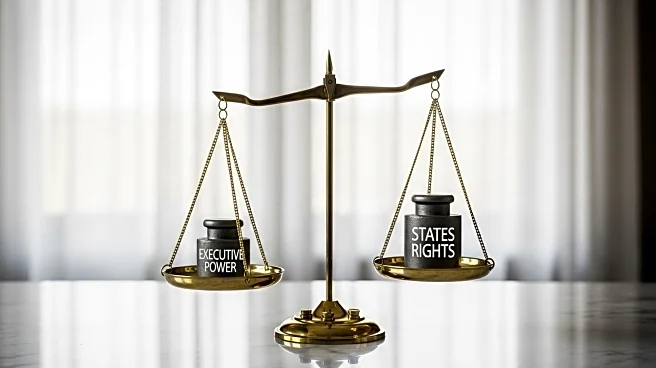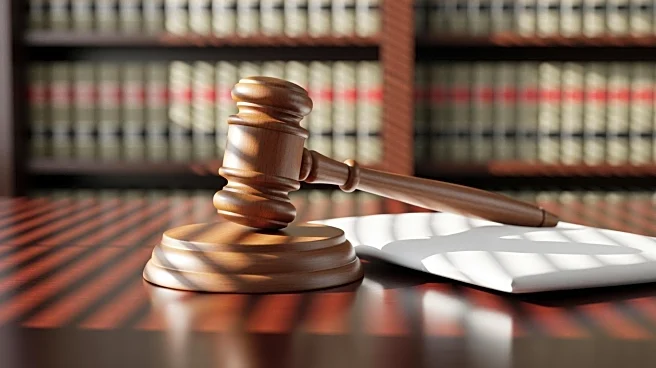What is the story about?
What's Happening?
The Supreme Court has commenced a new term with a docket heavily focused on executive power and states' rights. Among the cases to be heard are challenges to President Trump's executive actions, including his tariffs and the firing of independent agency commissioners. The court will also address a case that could potentially dismantle the remaining provisions of the Voting Rights Act. Additionally, the court will hear arguments on a Colorado law banning conversion therapy for minors, which a therapist claims violates her First Amendment rights. This term is marked by a record number of emergency docket decisions favoring the Trump administration, raising questions about the balance of power between the executive branch and the judiciary.
Why It's Important?
The outcomes of these cases could significantly impact the balance of power between federal and state governments, as well as the scope of presidential authority. A ruling against the Voting Rights Act could alter the landscape of electoral regulations, potentially affecting voter access and election outcomes. The court's decisions on executive power could redefine the limits of presidential authority, influencing future administrations. The case on conversion therapy touches on the intersection of free speech and state regulation, with implications for similar laws across the country. These decisions will shape the legal framework within which states and the federal government operate, affecting policy-making and governance.
What's Next?
As the Supreme Court hears these cases, stakeholders from various sectors, including civil rights organizations, state governments, and federal agencies, will be closely monitoring the proceedings. The decisions could prompt legislative responses or further legal challenges, particularly if the court's rulings significantly alter existing laws or precedents. The court's approach to these cases may also influence public perception of its role and impartiality, especially given the current political climate and the court's conservative majority.
Beyond the Headlines
The court's focus on executive power and states' rights highlights ongoing debates about federalism and the separation of powers. These cases may set precedents that affect the judiciary's role in checking executive actions, potentially leading to shifts in how power is distributed among the branches of government. The court's decisions could also influence future legal interpretations of the Constitution, particularly regarding the balance between individual rights and state authority.














